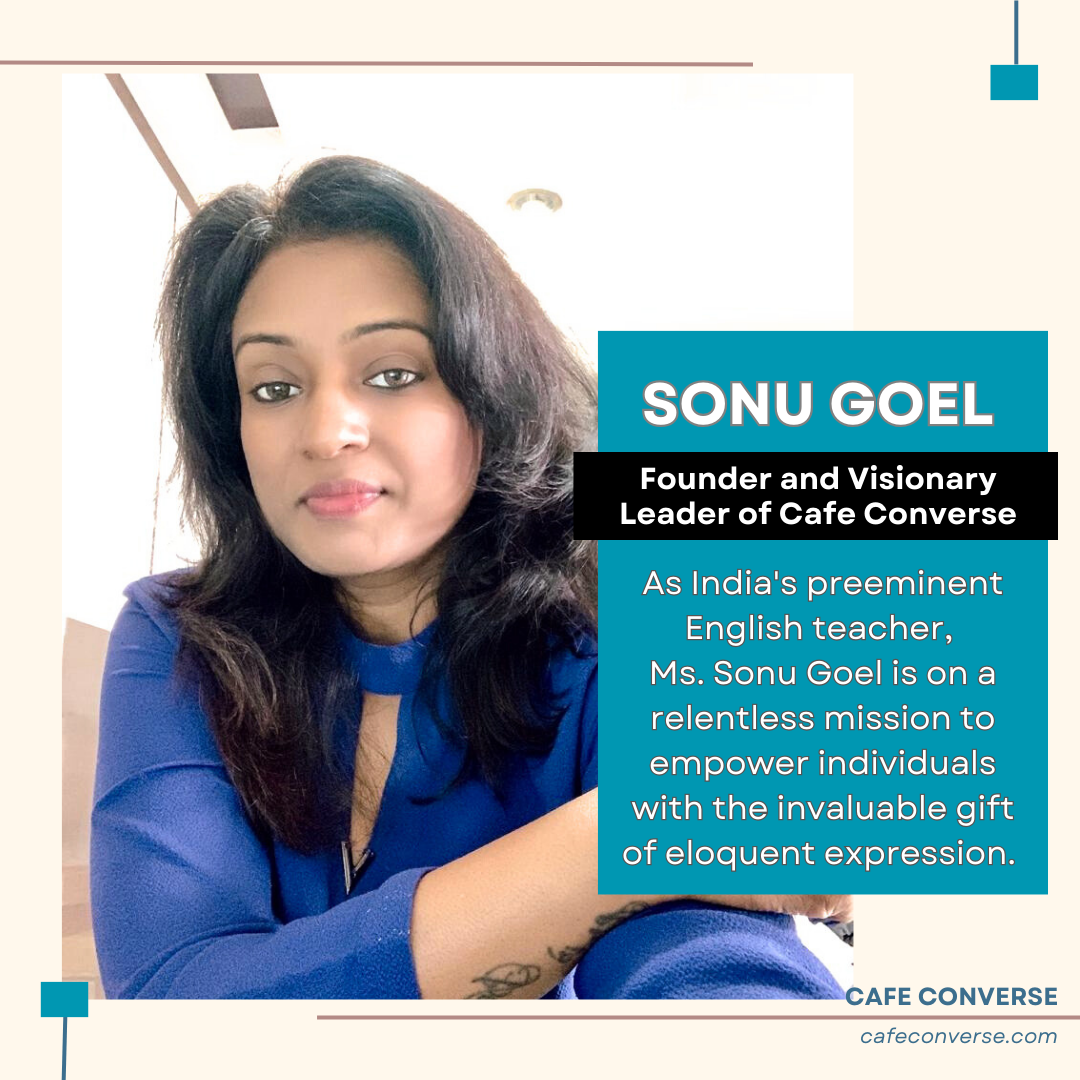And How to Answer Them
Getting prepared for a job interview in English when it is not your first language could be hard. But here is what can make it even harder. The questions you will be asked at an English-speaking organisation might be different from those you are used to.
This is due to the fact that international organisations focus on finding someone with maximum work experience. English-speaking organisations also want to understand your character, motives and career aspiration.
This blog by Ms Sonu Goel, Founder and Director of Café Converse, Delhi’s best institute for learning spoken English, shares a few questions that one should be prepared with, for a job interview in English. Here, let us see the two top tips on getting ready for an interview:
Research the Organisation
Researching the organisation shows the interviewer that you genuinely want to work at their company – and you have gone an extra yard to understand everything from their past mission and values to the way they work on a daily basis.
Research the Interviewer
Do not underestimate the advantage a quick check of your interviewer’s LinkedIn profile might give you. Perhaps you will find out that you have got a connection in common. Or maybe you will simply get a better idea of who they are and what they prefer. Whatever insight you get, let your findings shape the way you talk with the interviewer.
Interview Questions and Ways to Answer Them
Sonu Goel shares some advice on how to answer the following questions that you will get asked during the interview:
1. Tell me something about your experience
This is your opportunity to display your most relevant experience. But always bring everything you say back to why you want this role and why you think you would be the perfect fit.
2. What do you know about us?
Research is everything when it comes to a job interview – so use this question to display what you know about the organisation (think about their past, mission, values, and rivals), and the reasons why you wish to work there. For extra scores, talk about how everything you have learned has made you passionate regarding working there and how the role fits in with your career development goals.
3. Knowing things, you know about the manner we do things here, what change would you bring?
Ask yourself once, what relevant and existing transferable skills you have that could assist, drive the company forward – and even what extra or different knowledge you might need to acquire to create an even bigger impact.
4. Why do you wish to leave your current job?
Your response is going to say several things about what you are looking for in an employer, so answer this question with honesty and objectivity.
For instance, if the management style at your previous organisations did not suit you, say so. The interview procedure is a two-way route – you select your employer as much as the employer selects you. Yes, a piece of advice: if you reply with “I want a salary hike”, or “there are no opportunities for growth”, make certain you are ready to say why.
5. How will your ex-boss/team describe you?
Here, the interviewer is checking your self-awareness. Be sincere about who you are but also bear in mind that an organisation would want to hire people, they truly like and who show them respect. So, if you are easy to get on with or are a team player, make certain you say this.
6. Tell about a situation in your previous job where you failed to meet goals. How did you handle that situation?
Nothing to worry about, the interviewer is not going to judge you on your failure. Everyone makes mistakes – they simply want to know how efficiently you cope under pressure. Bonus points if the example includes working in a team. Most essentially, they would be looking for you to respond with the STAR method.
- Situation. Provide the context.
- Task. Tell them what the job entailed.
- Action. Tell them what the problem was, and ways you came up with a solution.
- Result. Tell them the way you implemented that solution, and what the outcomes were.
Tell about an occasion where you showcased the initiative
This question’s answer too will need the STAR method. This question could be a top way to present yourself as a team player. Think of an instance to use that shows how you contributed to the broader team or organisational efforts and left an impact.
7. How would you like to view your career shaping?
This is your cue to showcase your ambition and awareness of the potential career routes you could take. If you could come up with an answer that aligns your career goals with the role and organisation, you are applying for, use this as leverage to display how perfect you are for this position and why you would be excited to work there.
8. What are the salary expectations?
This is not a trick-based question. Be sincere, transparent and display awareness of your worth. Always approach the interview with keeping two salary amounts in mind: the one you are aiming for and the lowest one you would consider walking away with. That manner, if the interview turns into a salary negotiation, you will not get cornered into accepting any amount you are unhappy with. Another thing is mindful is that salary expectations always need to be justified, based on your present base salary, so answer accordingly. So, if you are offered a base salary that seems a bit low, always think whether the value of the benefits or bonus scheme you are presented with makes up for it.
9. What is the notice period?
This is a common job interview question. Employers ask this so that, if they offered you the job and you accepted, they would know when you would be able to start. This is also an appropriate time to mention any holidays or other commitments you have got coming up.
10 . Final Words
Now almost all the common questions are covered here, some final thoughts to share. When you are in the room, try and turn the question-answer interview pattern into a conversation. That is what an interview must be. As it is said before, the interview process is a two-way route. So do not miss your chance to make it one. And remember speaking confidently and clearly in English. That is the key to create an impression

Ms Sonu Goel is a professionally acclaimed certified ESL trainer from the British Council having 15 years of strong background for teaching the English language in both online and physical classes. She is dedicated to teaching of English in an interactive and practical way, whereby learners feel enriched with knowledge and experience the language hands-on. She uses creative ideas and aids to let the learning happen as organically and efficiently as possible. Ms Goel has travelled to various European countries and experienced an array of cultures and linguistic skills for the English language.
To learn more about Sonu Goel please visit : https://cafeconverse.com/best-english-tutor-coach-teacher-sonu-goel.html


